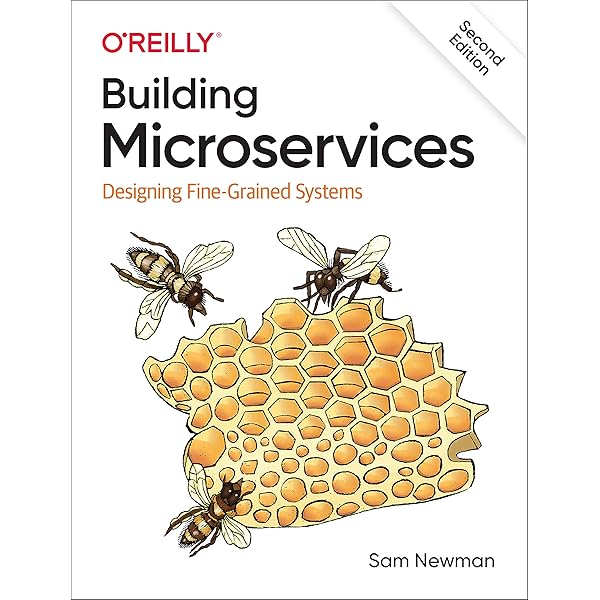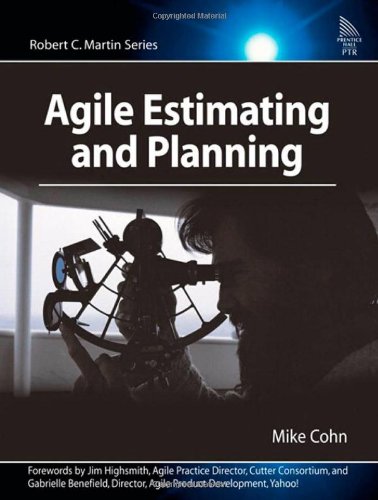 If you’re looking to enhance your software management skills, delving into the world of books can provide valuable insights and knowledge. In this article, we’ll explore some of the best software management books that offer practical guidance and strategies for effective leadership in the software development industry.
If you’re looking to enhance your software management skills, delving into the world of books can provide valuable insights and knowledge. In this article, we’ll explore some of the best software management books that offer practical guidance and strategies for effective leadership in the software development industry.
What is software management?
Software management is a discipline that concerns planning, arranging, coordinating, and regulating tasks related to software systems. Software management experts also participate in the creation, implementation, and upkeep of software systems inside an organization,
Those in the field need to keep an eye on software projects. They have to ensure that projects are proper and efficient, from inception through retirement. It frequently requires identifying potential risks and uncertainties connected to software development and putting such risks into practice. This entails foreseeing difficulties, evaluating their effects, and creating backup strategies.
What makes the best software management books?
The book should be able to extensively cover what it is they want to discuss about software management. Good books should discuss project planning, team management, software development processes, quality assurance, deployment, maintenance, and other related subjects.
It should also present a comprehensive understanding of software management methods. The greatest books on software management stay on top of the most recent trends, technologies, and approaches because the software industry is constantly changing. They should deal with modern issues including cloud computing, distributed teams, Agile and DevOps methodologies, and software management in a more digital and networked environment.
Our Picks: The best software management books
1. The Mythical Man-Month

One of Fred Brooks’ classic books on project management and software engineering is this one. The book’s overarching thesis is that “adding manpower to a late software project makes it later.” The writings in this book are about the author’s personal experiences while he was managing the development of OS/360 while employed by IBM. You can gain from this book’s practical tips and experience without taking on the job alone. This is the best project management book you can read if you like to learn from personal success and failure tales.
2. Building Microservices: Designing Fine-Grained Systems

Sam Newman’s excellent book “Building Microservices: Designing Fine-Grained Systems” on contemporary software architecture is perfect for engineering managers. The book gives a thorough overview of microservices, a well-liked method of software design that includes slicing up huge applications into more manageable, autonomous services. The book talks about creating and implementing microservices-based architectures. This includes the best practices, design principles, and practical examples.
It places a focus on the creation and implementation of scalable, highly available systems. Microservices are tightly interwoven with DevOps and CI/CD, as is the case with any agile-based process; this book also covers how to integrate and deploy microservices with CI/CD pipelines.
3. Peopleware: Productive Projects and Teams
Another enduring project management classic is Peopleware. If you got it correctly, Peopleware is one of the two pillars of computer technology, alongside hardware and software. Even if you don’t agree with it, you should read it in order to provide a baseline for your decisions. As an illustration, the chapter “Spaghetti Dinner” describes a hypothetical situation in which a manager invites a new team over for dinner and then instructs them to shop and cook the meal as a group in order to achieve first-team success.
Other chapters explain the concepts with examples from real life or by citing several studies. Additionally, Beginner’s Guide to Project Management is a wonderful place to start if you need a beginner project management course to go along with this book.
4. Data-Driven Engineering Leadership in 2022
Being a competent software engineering leader is harder than simply following a 10-step plan. There is more to climbing the corporate ladder as a newly promoted Engineering Manager or aiming for a C-suite role as a CIO or CTO knows. You have to deal with complicated problems every day that call for a combination of technical, interpersonal, and communication abilities.
When you take a closer look, you might see that everything comes down to a number of factors. This includes the assistance you give your team, the manner in which you evaluate their performance, the methods in which people interact with one another, how they approach projects, their performance, and their work ethics.
5. Rapid Development: Taming Wild Software Schedules

One of my favorite authors and a man who enjoys enormous respect in the programming community, Steve C. McConnel, is the author of this book. Many of the development management concepts that Microsoft discovered during its first ten or so years of extensive software development are well-captured by Steve McConnell.
The trade-offs that this book teaches you about are maybe the most useful lessons you will learn because they provide you with a different perspective on software engineering. It is just impossible to produce high-quality, feature-rich, all-encompassing software quickly and affordably.
You must decide whether you choose a project with fewer features for the sake of completing it faster, or one with more features but done slower. Steve McConnel has done a fantastic job of articulating the usefulness of project management and software development.
6. Smart and Gets Things Done: Joel Spolsky’s Concise Guide to Finding the Best Technical Talent
Joel Spolsky’s book “Smart and Gets Things Done” offers helpful advice on assessing technical resources, determining culture fit, and making effective hiring. The recruitment, interviewing, and employment of top technical talent is the main topic of the book. It offers amusing advice and knowledge in a practical way. A self-created test called the “Joel Test” that teaches you how to assess software teams is one of the book’s distinctive contributions. It also demonstrates how to swiftly locate outstanding employees and hire them.
This book assists engineering managers in finding, evaluating, and hiring the best technical candidates. It provides guidelines for hiring outstanding technical talent as well as a system for doing so. It addresses candidate selection, resume sorting, and phone and in-person interviews. Additionally, it makes several recommendations for keeping your organization’s best employees.
7. Accelerate: The Science of Lean Software and DevOps
 c
c
Dr. Nicole Forsgren, Jez Humble, and Gene Kim are the authors of Accelerate: The Science of Lean Software and DevOps: Building and Scaling High Performing Technology Organizations, another well-known book on engineering management. The article’s goal is to assist engineering managers in measuring software development performance beyond the traditional, quantitative indicators that don’t provide a whole picture of their projects, such as lines of code or the number of contributions. In order to create Accelerate, the authors conducted a four-year study involving more than 2,000 businesses of varying sizes from a range of sectors, including manufacturing, banking, and agriculture.
The DevOps principles and how they might improve software delivery and business results are the main topics of this book. The book introduces the concept of “Accelerate State of DevOps” and four important metrics concerned with high performance in software development and operations. The author also emphasizes the relevance of regular deployments as a sign of success. Software is widely deployed in high-performing firms, allowing for quicker feedback loops and shorter lead times. The MTTR concept is another. The MTTR calculates how long it takes to restore services following a failure or event. Furthermore, it discusses the necessity of lowering MTTR through efficient incident response and automated recovery methods.
8. Agile Estimating and Planning

“Agile Estimating and Planning” by Mike Cohen is a vital resource for all kinds of software engineers. It is great for those who want to implement agile approaches and practices, such as pair programming and test-driven development. It also offers helpful advice on how to put agile techniques into practice and how to effectively manage teams in a collaborative, iterative setting.
This book on software planning and estimating supported by the Agile approach is among the finest. The author, Mike Cohn, is a well-known figure in the Agile community and has produced a number of books on various aspects of Agile, including scrum, user stories, etc. In today’s dynamic and ever-changing projects, this book strives to offer deterministic ways to software estimating and planning. It’s a great book to learn about the contemporary software estimation process even if you don’t use Agile.
This book offers agile teams practical strategies and ideas. Through examples from the actual world and case studies, it clearly illustrates all the fundamental ideas and methods. Cohen wrote in a way that even a non-technical audience can grasp it, which is a positive thing. The chapters are in the same order as the various stages of the software development lifecycle, which shows how well-organized it is.
To stay current with the newest methods and equipment, the book has undergone numerous updates. Author Mike Cohen is a well-known agile expert, and agilists all around the world rely on his advice and ideas. Engineering managers may learn how to organize and oversee Agile development initiatives from this book. They may effectively employ resource allocation, user story management, iteration planning, release planning, scrum ceremonies, and any other practical advice and approaches.
9. Software Estimation: Demystifying the Black Art
![Software Estimation( Demystifying the Black Art)[BEST PRAC SOFTWARE ESTIMATION][Paperback]: SteveMcConnell: Amazon.com: Books](https://m.media-amazon.com/images/I/41AifgCPyyL._AC_UF1000,1000_QL80_.jpg)
This is yet another outstanding book on software estimating and project management from Steve McConnell. Because of its complexity and surrounding uncertainty, the procedure is appropriately referred to as “black art.” There is still no tool or process that can accurately predict how long it will take to develop software, despite decades of advancement. It greatly depends on a number of variables, including your team, if you have the right people for the job, the tools, users who are providing requirements, and users who are receiving requirements.
This book intends to teach you how to precisely estimate the time period for software development, which is a crucial ability for any technical project manager or tech lead.
What business books should a software engineer read?
It can be advantageous for your professional development as a software engineer to broaden your knowledge of the world of business. Here are some business books that will help you gain important knowledge and better comprehend the business world:
Eric Ries’ book “The Lean Startup” addresses the idea of lean methodology. Ries discusses how developers can use it in product development and companies. In order to create successful enterprises, it emphasizes the value of iterative experimentation, verified learning, and continual improvement.
The book The Innovator’s Dilemma by Clayton M. Christensen explores the difficulties faced by established businesses in disruptive innovation. It looks at why successful businesses frequently struggle to adopt disruptive technologies and offers tactics for managing innovation in a rapidly evolving environment.
“High Output Management” by Andrew S. Grove: This book, written by the former CEO of Intel, offers insights into effective management and leadership in a technology-focused workplace. It addresses subjects including goal planning, team dynamics, decision-making, and effective communication.
What are the best books for project managers to start with?
There are various books that offer insightful perspectives on the practices of project management for project managers. The Project Management Institute (PMI)’s “A Guide to the Project Management Body of Knowledge (PMBOK® Guide)” is a guide considered as the industry standard for project management.
It offers a thorough framework, industry-standard procedures, and vocabulary. Eric Verzuh’s book “The Fast Forward MBA in Project Management” provides a clear and useful introduction of project management ideas. It is a great resource for both beginning and seasoned project managers because it addresses important subjects such as project initiation, planning, execution, monitoring, and closure.
Cliff Ricketts and Ron Drews’ “The Project Manager’s Book of Checklists: How to Complete a Project Successfully, Smoothly, and on Time” is a useful manual that provides checklists and templates that project managers can use all through the project lifecycle. It offers practical tools for efficient project planning and execution and covers a broad range of project management duties.
What is the best book on engineering management?
Numerous well-regarded works on engineering management offer insightful perspectives on the particular difficulties and obligations of leading engineering teams. While opinions may differ based on individual requirements and tastes, the following book is commonly suggested as a thorough resource.
Despite not being directly about engineering management, Julie Zhuo’s book “The Making of a Manager: What to Do When Everyone Looks to You” provides useful guidance for aspiring managers and those moving into managerial positions. Effective communication, creating and leading teams, giving feedback, and navigating organizational dynamics are just a few of the subjects it addresses that are pertinent to engineering managers.





